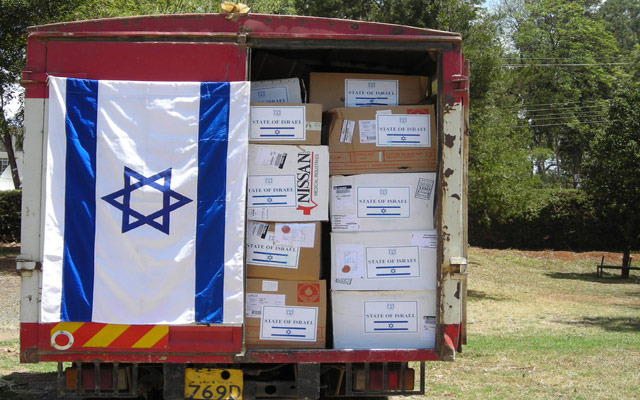The first kosher dietary prohibition was made long before the Torah was received. What is the significance?
This week’s Torah portion is Vayishlach (Genesis 32:4–36:43), and in it we read about Jacob’s nocturnal battle with “a man” whom our sages teach us was really Esau’s guardian angel.
This wrestling match continued all night long. Sometimes Jacob got the upper hand, and sometimes the angel got the upper hand. The match was essentially a draw, until the angel dislocated Jacob’s thigh (“the sciatic nerve”).
To remember this encounter, as well as the dislocated thigh, Jews generally do not eat any meat from the back portions of an animal that come from the area of the sciatic nerve. This is a mitzva (Torah commandment) that is often referred to as gid hanasheh (sciatic nerve). As the Torah says, “Therefore the Jewish people do not eat the displaced nerve on the hip joint to this very day, because he dislocated Jacob’s thigh.” (Gen. 32:33)
There you have it. This is the first kosher law given to the Jewish people, long before the Torah was even given! What is the significance of this prohibition? Why do we have a mitzva commemorating a mysterious wrestling match that took place thousands of years ago?
While most of the other kashrut (Jewish dietary law) requirements relating to meat production have roots in moral obligations and responsibilities towards animals, the mitzva of gid hanasheh is different. It is meant to teach a more encompassing and global ethical aspiration. As mentioned, our sages teach us that the “man” who fought with Jacob was none other than Esau’s angel. Esau, and his angel, represented a lifetime of cruelty and violence, one who “lives by the sword.” This event between Jacob and Esau, between aggressor and victim, and between good and bad was symbolic of the world in general and the Jewish experience in particular.
By not eating the sciatic nerve, and by extension, any meat from the immediate area, we demonstrate our opposition to violence and unprovoked aggression. There is never any justification to take advantage of those who are weaker or who find themselves in “the darkness of night.”
The Jewish nationalist idea has always included a major component of tikkun olam, a term used to convey caring about others and trying to improve the world. In modern-day Israeli terms: We need a strong army, we must defend ourselves, and we need to build up our country. Nonetheless, Israel has always been there to help those in need, especially when it concerns relief missions from national disasters. From search-and-rescue to the world’s best field hospitals, Israel is a country that doesn’t forget its friends and neighbors and helps out whenever needed. It’s part of our national mission!
Perhaps that’s why Israel has been blessed with nothing less than miraculous growth over the last 68 years. Remember that the next time you bite into a piece of T-bone steak or rump roast!
By: Rabbi Ari Enkin, Rabbinic Director, United with Israel
For more insights by Rabbi Enkin on this week’s Torah portion, click on the links below:
https://unitedwithisrael.org/vayishlach-being-happy-with-what-we-have/
https://unitedwithisrael.org/living-torah-jacobs-vision-for-the-jewish-future/
https://unitedwithisrael.org/living-torah-the-eternal-wrestling-match/
https://unitedwithisrael.org/fighting-the-esaus-of-yesterday-and-today/
https://unitedwithisrael.org/3-step-battle-plan/
Bring Joy to Israeli Soldiers - Send Winter Care Packages!
We are honored to thank the young men and women of the IDF who risk their lives every day to defend the citizens of Israel.
Join us in sending winter care packages and personal notes of support to Israeli soldiers who are out in the cold all day.
Warm up a soldier's heart with essential winter wear including fleece jackets, hats, gloves and more. Keep an entire unit warm!
THE SOLDIERS REALLY APPRECIATE YOUR LOVE AND CONCERN!
Click Here to Send Your Gift and Personal Note to Israeli Soldiers

